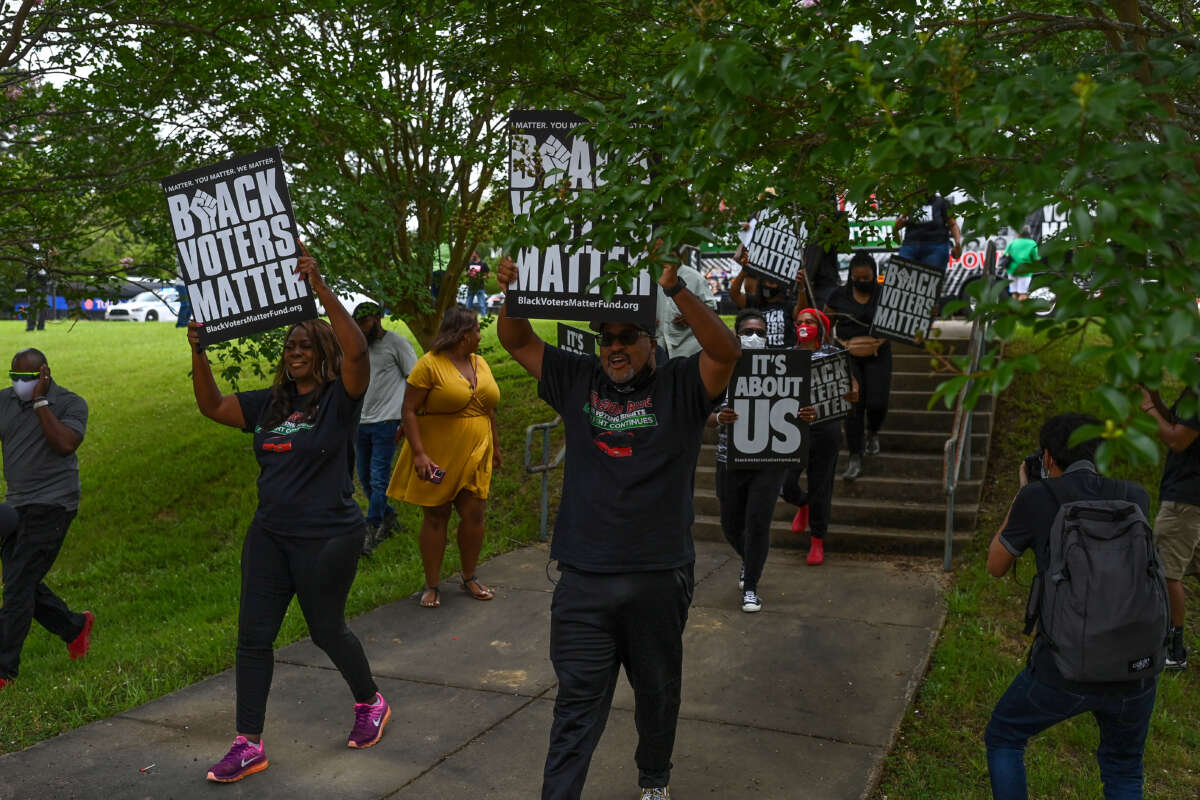A U.S. federal appellate court on Friday ruled that a Jim Crow-era Mississippi law permanently disenfranchising people with certain felony convictions is unconstitutional.
In a decision that can be appealed to the full U.S. 5th Circuit Court of Appeals, a three-judge panel of the tribunal ruled 2-1 that Section 241 of Mississippi’s 1890 Constitution “violates the Eighth Amendment’s prohibition on cruel and unusual punishment and the 14th Amendment’s guarantee of equal protection under the law.”
Last August, the 5th Circuit affirmed Section 241 ,with dissenting Judge James E. Graves Jr., a Black Mississippian, lamenting that when his colleagues were “handed an opportunity to right a 130-year-old wrong, the majority instead upholds it.”
The U.S. Supreme Court declined to hear an appeal of the ruling, prompting a scathing dissent from liberal Justice Ketanji Brown Jackson.
“In the last 50 years, a national consensus has emerged among the state legislatures against permanently disenfranchising those who have satisfied their judicially imposed sentences and thus repaid their debts to society,” Friday’s ruling states. “Mississippi stands as an outlier among its sister states, bucking a clear national trend in our nation against permanent disenfranchisement.”
Friday’s ruling is the result of a 2018 lawsuit filed by the Southern Poverty Law Center and ACLU on behalf of plaintiffs including Dennis Hopkins, who has been disenfranchised since 1998 due to a grand larceny conviction.
“In school, they teach our kids that everybody’s vote counts, but no matter how I’ve lived for the past 20 years, I don’t count, not my values or my experience,” Hopkins said when the suit was filed. “I have paid Mississippi what I owe it in full, but I still can’t cast my vote for my children’s future.”
Section 241 “mandates permanent, lifetime disenfranchisement of a person convicted of a crime of any one of ‘murder, rape, bribery, theft, arson, obtaining money or goods under false pretense, perjury, forgery, embezzlement, or bigamy,'” according to the ruling.
As the NAACP Legal Defense Fund (LDF) notes, “Section 241 permanently disenfranchises people convicted of 10 specific crimes, eight of which were chosen by all-white delegates in 1890 and based on their belief that Black people were more likely than white people to be convicted of those crimes.”
There are currently more than 20 crimes that disenfranchise Mississippians from voting. The state — which according to the Sentencing Project is one of only 12 with lifetime disenfranchisement — added 11 more offenses to the ban list in 2005.
In contrast, everyone age 18 and up — including currently incarcerated individuals—has the right to vote in Maine and Vermont.
While Black Mississippians are 36% of Mississippi’s voting-age population, they make up 59% of its disenfranchised people.
“Section 241 is Jim Crow law, which created a deliberate and invidious scheme to disenfranchise Black people,” said LDF assistant counsel Patricia Okonta.
“Today, Black Mississippians continue to be disproportionately harmed by this provision,” Okonta added. “While the state is home to the highest percentage of Black Americans of any state in the country, it has not elected a Black person to statewide office since 1890.”
According to the Felony Murder Elimination Project, a California-based advocacy group:
Over 215,000 people in Mississippi were disenfranchised as of 2019, representing almost 10% of the entire state population. Of this total, only 7% are incarcerated. The remaining 93% are living in the community either under probation or parole supervision, or have completed their criminal sentence. The number of African American residents disenfranchised in Mississippi numbered 127,130 in 2016 or nearly 16% of the Black electorate.
“No one disputes that Mississippi’s felon disenfranchisement law was enacted more than 100 years ago for the announced purpose of maintaining white supremacy and blocking Black citizens from voting,” ACLU national legal director David Cole said in a statement.
“Racially motivated laws don’t become valid over time,” Cole added. “It’s just as unconstitutional today as it was when it was enacted. That such a law remains on the books today is a stain on the state’s law books, and plainly unconstitutional.”
Our most important fundraising appeal of the year
December is the most critical time of year for Truthout, because our nonprofit news is funded almost entirely by individual donations from readers like you. So before you navigate away, we ask that you take just a second to support Truthout with a tax-deductible donation.
This year is a little different. We are up against a far-reaching, wide-scale attack on press freedom coming from the Trump administration. 2025 was a year of frightening censorship, news industry corporate consolidation, and worsening financial conditions for progressive nonprofits across the board.
We can only resist Trump’s agenda by cultivating a strong base of support. The right-wing mediasphere is funded comfortably by billionaire owners and venture capitalist philanthropists. At Truthout, we have you.
We’ve set an ambitious target for our year-end campaign — a goal of $112,000 to keep up our fight against authoritarianism in 2026. Please take a meaningful action in this fight: make a one-time or monthly donation to Truthout before December 31. If you have the means, please dig deep.
